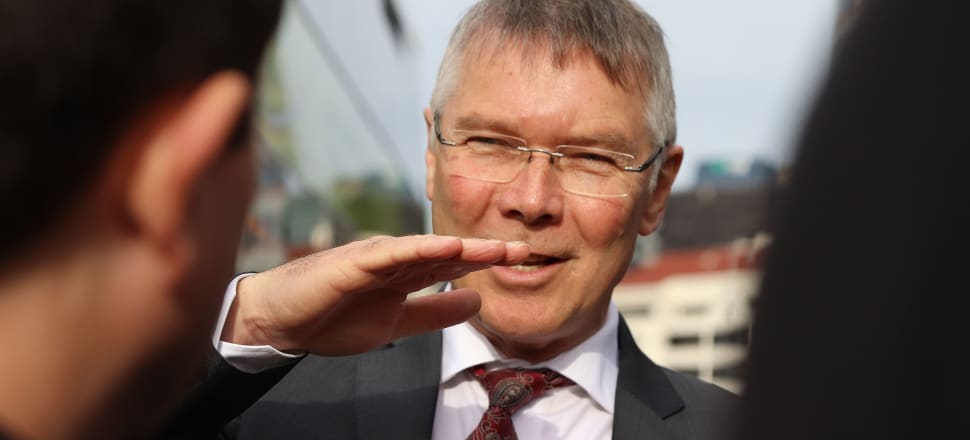
Revelations the wealthy pay half the tax rate of ordinary Kiwis will pour gasoline on what was already a fiery debate heading into the election
Analysis: “We all rely on an education, sealed roads and a police force that we should all fairly contribute to.”
That’s how Revenue Minister David Parker is framing the argument for fixing the broken tax system – it’s a matter of fairness, not an attack on the wealthy, who he says will still be the richest even if changes are made.
For the first time, the Government now has compelling evidence of just how unfair the tax system is, and that is “ground-breaking” according to Parker.
READ MORE: * Post-Ardern, could a capital gains tax be back on the table? * Louise Delany: How to make NZ's tax system fairer * The even wealthier can breathe easier until 2023 at least
After a two-year investigation by Inland Revenue of 311 of New Zealand’s wealthiest individuals, the study has revealed they pay a median effective tax rate of 9.4 percent compared with the 'middle wealth' of all other Kiwis, who pay 20.2 percent.
If you add GST into the mix the effective tax rate for the wealthy rises to just 9.5 percent compared with a person earning $80,000, with no other income, who pays 22 percent income tax, which climbs to almost 30 percent if you add GST on.
The IRD study has brought to light just how much GST affects lower income households compared with those at the wealthy end. GST paid as a portion of income drops sharply at the top end, something Parker says is a “substantial and poorly understood difference”.
“I’m not suggesting these people aren’t complying with current tax rules, that is not what I’m suggesting here." – David Parker
The big factor in the overall discrepancies is largely untaxed capital gains.
But Parker didn’t want to talk about a capital gains tax (CGT) on Wednesday, saying he wasn’t prepared to discuss any tax remedy because conclusions would be drawn as to what that means for Labour’s tax policy.
There is speculation the Prime Minister might answer some of these questions at his pre-Budget speech in Auckland on Thursday.
But Labour will have in mind that anything it takes into the election campaign needs to pass the voter test, and former leader Jacinda Ardern went as far as to rule out ever implementing one while Prime Minister because CGT had become so tainted.
Parker conceded he didn’t necessarily think it was easier to sell CGT now with all the evidence of the IRD report than in 2017 when Labour failed to get support for it.
He is a passionate supporter of CGT and has campaigned for it twice before, and repeated on Wednesday that he had never favoured taxing the family home as part of it because “high rates of home ownership are a cornerstone of a fair society”.
Parker did note CGT wasn’t the “best or only solution” for the unfair tax system.
“Why, in a country with billionaires, has the data set we have used for policy purposes effectively ignored the wealthiest?" – David Parker
As it stands, the way tax is collected in New Zealand is financially sustainable – even if it’s wrong, Parker said.
“Most New Zealanders will be surprised to know average assets held by [the wealthy] is $256 million each, and the tax they pay on their income is half of other New Zealanders,” he said.
“I’m not suggesting these people aren’t complying with current tax rules, that is not what I’m suggesting here,” he emphasised.
The study is a result of a 2020 law change which gave IRD new powers to require the richest to be upfront with their earnings. Of the 350 approached to provide financial details, only 311 responded.
Parker pointed out the information up until now has been inaccurate, with the Household Economic Survey finding just two with wealth greater than $20m.
While the National Business Review rich list provided a little more insight about wealth, it was lacking in economic income.
“Why, in a country with billionaires, has the data set we have used for policy purposes effectively ignored the wealthiest? It’s not out by a factor of 10 – that would be huge in itself – the maximum is out by a factor of hundreds,” Parker said.
Again, he came back to the IRD study not being an exercise in chasing “tax avoiders” but it does grimly lay out the fact tradies, nurses, school teachers, hairdressers, cleaners and small business owners are all paying a much higher tax than their wealthy fellow Kiwis.
And that’s a debate New Zealanders are going to want to have heading into the election. Labour will spell out its tax policy at some point before then and the Greens will continue to campaign for a wealth tax.
National on the other hand wants inflation-adjusted tax brackets and had proposed scrapping the top 39 percent tax bracket but walked that back late last year as inflation soared.
Regarding the findings in the IRD study, National Party leader Christopher Luxon evaded answering anything about whether the tax system was fair or whether changes should be made.
The study itself doesn’t provide political answers or action voters might want and Parker was staying tight-lipped also, other than small monitoring tweaks.
Parker said the Government wants IRD to keep a watch and report back on how the tax system is operating and will work on introducing a series of tax principles, which will require tax policy officials to regularly report on the system.
He says this study started with a speech entitled, Shining a light on unfairness in the tax system.
“That light has now been shone”.
The question is, what is anyone going to do about it?







